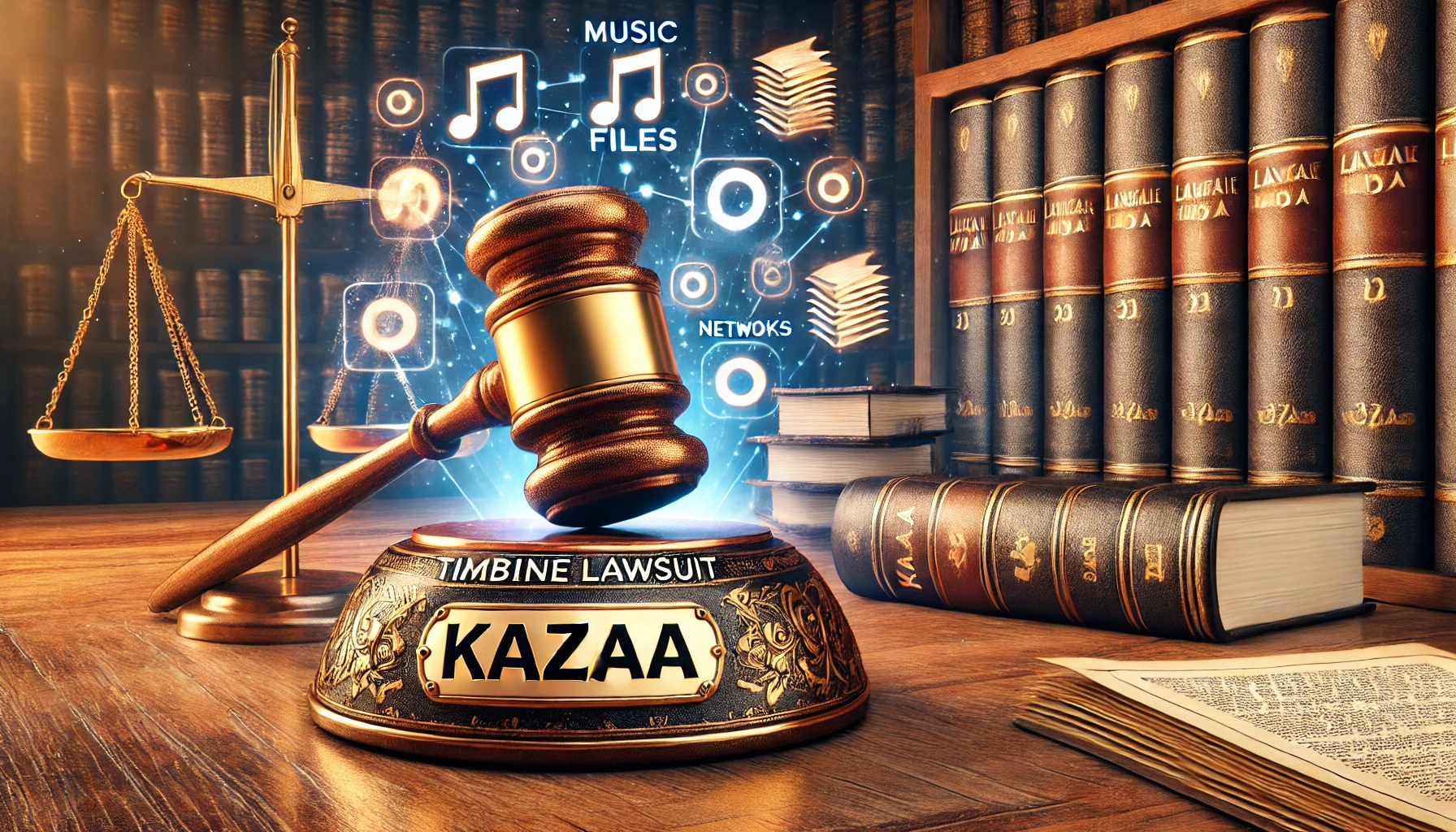The Timberline lawsuit Kazaa is a significant legal battle that has drawn attention for its complex issues surrounding intellectual property and copyright law. The dispute, which involves the company Timberline and the file-sharing platform Kazaa, brings to light the ongoing tension between media content creators and online platforms facilitating file distribution. In this article, we will examine the Kazaa Timberline lawsuit, the context of the legal dispute, and its potential ramifications for both companies and the broader digital media landscape.
What Is the Timberline Lawsuit Kazaa About?
The Timberline legal case Kazaa centers around allegations made by Timberline regarding illegal content distribution. Timberline, a prominent company in the software or digital content industry, claims that Kazaa facilitated the unlawful sharing of copyrighted material without permission. The lawsuit has brought forth significant concerns about digital rights, copyright violations, and the responsibility of online platforms in managing content shared by their users.
The Nature of the Legal Dispute: Timberline vs Kazaa
In the Kazaa Timberline lawsuit, Timberline asserts that Kazaa, known for its file-sharing platform, allowed its users to share files containing proprietary content without proper authorization. This Timberline litigation Kazaa highlights a broader issue of intellectual property theft and the challenges that companies face in protecting their content in the digital age. The case has the potential to set a precedent for how digital media rights are enforced in future legal disputes.
Key Allegations in the Timberline vs Kazaa Lawsuit
1. Copyright Infringement and Unauthorized File Sharing
The central issue in the Kazaa Timberline legal proceedings revolves around copyright infringement. Timberline claims that Kazaa’s platform enabled users to distribute copyrighted material—such as movies, music, or software—without obtaining the necessary permissions from the rights holders. This has raised questions about the responsibilities of platforms like Kazaa in monitoring the content shared by their users and preventing violations of intellectual property laws.
2. The Role of Kazaa in Facilitating Infringement
In the Timberline Kazaa copyright lawsuit, one of the main points of contention is whether Kazaa actively facilitated the infringement or merely provided the platform for users to upload and download files. Kazaa has maintained that it is a neutral party and not responsible for the content shared by its users. However, Timberline argues that the company failed to take sufficient action to stop illegal file-sharing, thereby enabling large-scale copyright violations.
3. The Legal Framework for File Sharing Platforms
The Kazaa Timberline class action lawsuit also touches on the broader issue of how legal frameworks apply to online platforms. Many online platforms have faced legal challenges over the years related to user-generated content and the responsibilities of those platforms. The Kazaa and Timberline legal battle could provide significant insights into how courts interpret the Digital Millennium Copyright Act (DMCA) and whether platforms can be held accountable for content uploaded by their users.
Potential Outcomes of the Timberline Kazaa Lawsuit
The Timberline litigation case Kazaa could have several potential outcomes, depending on the evidence presented in court and how the legal arguments unfold. Here are some of the possible results of the lawsuit:
1. A Settlement Between Timberline and Kazaa
In many cases, disputes like the Timberline Kazaa lawsuit settlement are resolved through a settlement before reaching trial. This could result in Kazaa agreeing to compensate Timberline for any damages caused by the alleged infringement. A settlement might also involve changes in how Kazaa operates, including the implementation of stricter content-monitoring measures to prevent future violations.
2. Court Ruling in Favor of Timberline
If the court finds in favor of Timberline, Kazaa could face significant financial penalties for its role in the alleged copyright infringement. The Kazaa Timberline court case could lead to a landmark decision in favor of content owners, establishing stronger legal obligations for file-sharing platforms to actively prevent the distribution of unauthorized content.
3. Kazaa Wins the Case
On the other hand, if Kazaa prevails in the Timberline lawsuit Kazaa, the ruling could bolster the argument that file-sharing platforms should not be held liable for user-uploaded content. This outcome would potentially have wide-reaching implications for other digital platforms, offering more protection from liability in similar cases of user-generated content.
Broader Implications of the Timberline vs Kazaa Case
1. Impact on Digital Copyright Law
The outcome of the Timberline legal claim against Kazaa will likely influence the interpretation and enforcement of copyright laws in the digital age. If Timberline wins, it could lead to more stringent regulations for platforms like Kazaa, encouraging other companies to implement more rigorous content monitoring systems. If Kazaa wins, it could pave the way for more lenient rules for platforms, changing how copyright laws are applied to the internet.
2. Relevance to Other File-Sharing Platforms
Other companies operating in the file-sharing and streaming industry, such as BitTorrent or YouTube, could be closely monitoring the case. A decision in favor of Timberline could lead to similar lawsuits against other platforms, creating a ripple effect across the digital media industry.
3. Consumer Impact
Consumers could also feel the impact of this case, especially if it results in the removal of certain content or the introduction of stricter content regulations. The Kazaa Timberline dispute in court may lead to changes in how accessible certain digital media is for users, potentially restricting access to content that has been shared illegally in the past.
Conclusion: The Future of Digital Copyright Enforcement
The Timberline lawsuit Kazaa has the potential to reshape the landscape of digital copyright law. Whether it results in a settlement or a courtroom victory, the case will influence how platforms like Kazaa handle user-uploaded content in the future. The outcome of the Kazaa Timberline legal proceedings details will likely play a crucial role in defining the boundaries of intellectual property rights in the digital era.
The case highlights the ongoing tension between content creators and digital platforms, and it serves as a reminder of the importance of protecting intellectual property in a world where information is shared rapidly and widely across the internet.
FAQs
Q: What is the Timberline lawsuit Kazaa about?
A: The Timberline lawsuit Kazaa centers around allegations that Kazaa allowed users to share copyrighted material without permission, violating copyright laws.
Q: What are the main allegations in the Kazaa Timberline lawsuit?
A: Timberline claims that Kazaa facilitated the distribution of copyrighted content without authorization, leading to copyright infringement.
Q: What could be the outcome of the Timberline vs Kazaa legal battle?
A: The outcome could include a settlement, a financial penalty for Kazaa, or a ruling in favor of Kazaa, depending on how the case progresses.
Q: How will the lawsuit impact other file-sharing platforms?
A: The case may set a precedent for how other platforms handle user-generated content and their legal responsibilities in relation to copyright infringement.
Q: What are the broader implications of the Timberline Kazaa case?
A: The case could impact the interpretation of digital copyright laws, as well as how content-sharing platforms manage user-uploaded materials in the future.











